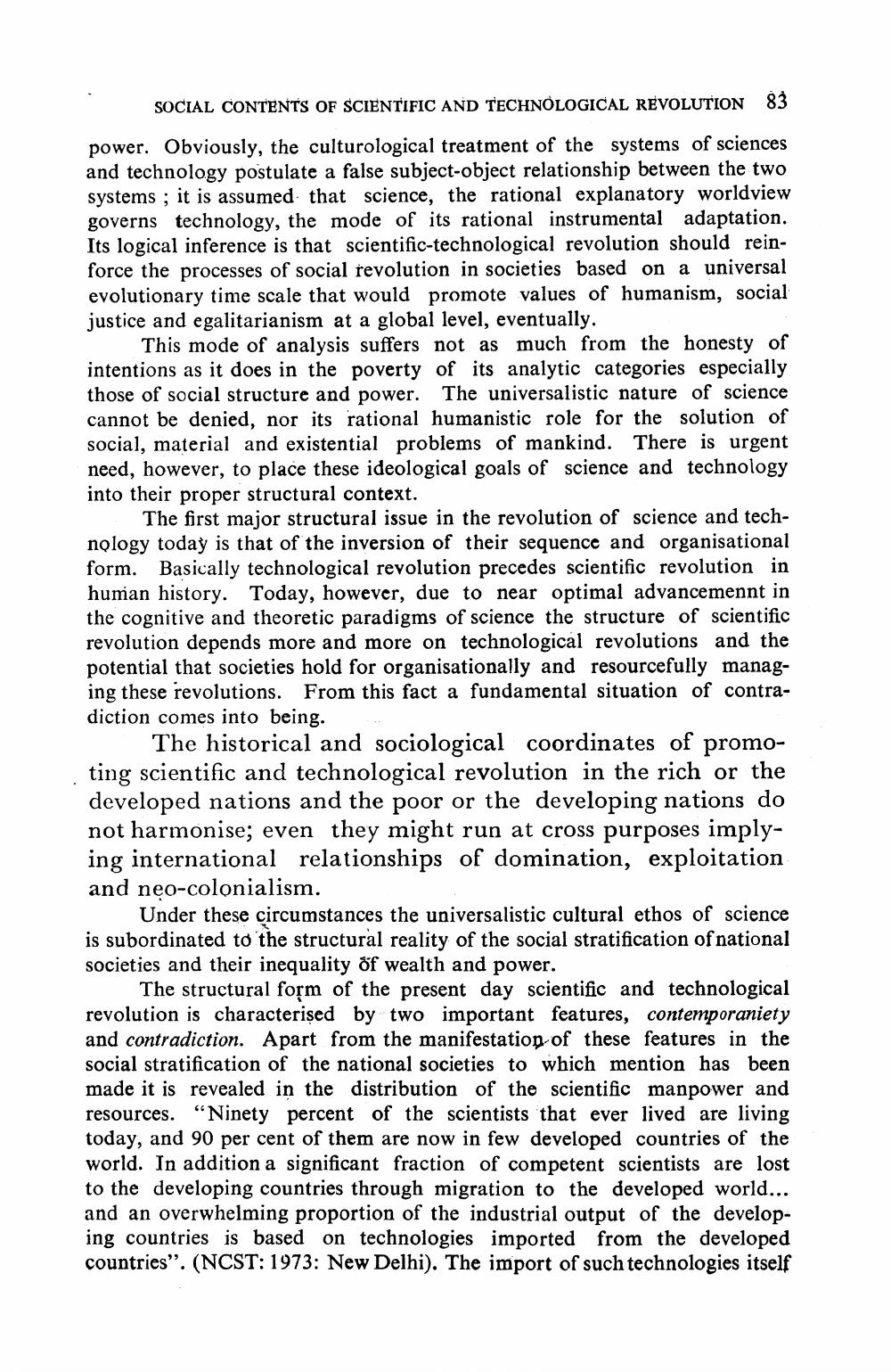Book Title: Social Contents Of Scientific And Technological Revolution Author(s): Yogendra Singh Publisher: Yogendra Singh View full book textPage 3
________________ SOCIAL CONTENTS OF SCIENTIFIC AND TECHNOLOGICAL REVOLUTION 83 power. Obviously, the culturological treatment of the systems of sciences and technology postulate a false subject-object relationship between the two systems; it is assumed that science, the rational explanatory worldview governs technology, the mode of its rational instrumental adaptation. Its logical inference is that scientific-technological revolution should reinforce the processes of social revolution in societies based on a universal evolutionary time scale that would promote values of humanism, social justice and egalitarianism at a global level, eventually. This mode of analysis suffers not as much from the honesty of intentions as it does in the poverty of its analytic categories especially those of social structure and power. The universalistic nature of science cannot be denied, nor its rational humanistic role for the solution of social, material and existential problems of mankind. There is urgent need, however, to place these ideological goals of science and technology into their proper structural context. The first major structural issue in the revolution of science and technology today is that of the inversion of their sequence and organisational form. Basically technological revolution precedes scientific revolution in human history. Today, however, due to near optimal advancemennt in the cognitive and theoretic paradigms of science the structure of scientific revolution depends more and more on technological revolutions and the potential that societies hold for organisationally and resourcefully managing these revolutions. From this fact a fundamental situation of contradiction comes into being. The historical and sociological coordinates of promoting scientific and technological revolution in the rich or the developed nations and the poor or the developing nations do not harmonise; even they might run at cross purposes implying international relationships of domination, exploitation and neo-colonialism. Under these circumstances the universalistic cultural ethos of science is subordinated to the structural reality of the social stratification of national societies and their inequality of wealth and power. The structural form of the present day scientific and technological revolution is characterised by two important features, contemporaniety and contradiction. Apart from the manifestation of these features in the social stratification of the national societies to which mention has been made it is revealed in the distribution of the scientific manpower and resources. "Ninety percent of the scientists that ever lived are living today, and 90 per cent of them are now in few developed countries of the world. In addition a significant fraction of competent scientists are lost to the developing countries through migration to the developed world... and an overwhelming proportion of the industrial output of the developing countries is based on technologies imported from the developed countries". (NCST: 1973: New Delhi). The import of such technologies itselfPage Navigation
1 2 3 4 5
